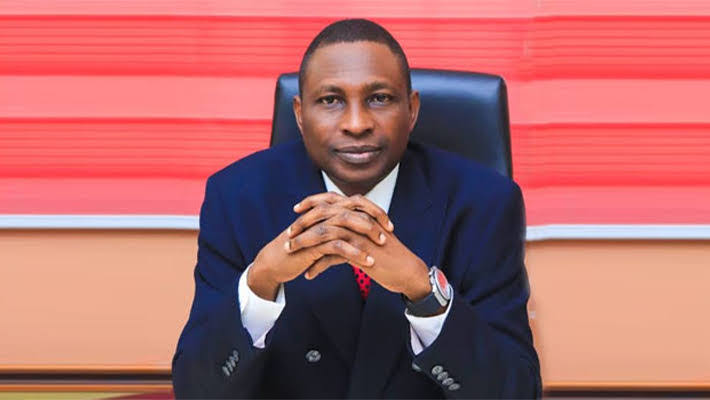The head of the financial watchdog stated that if the money was found, it could greatly improve the continent’s infrastructure, healthcare system, and educational system. Artificial intelligence (AI) and blockchain technology have been emphasised by Olanipekun Olukoyede, the chairman of Nigeria’s Economic and Financial Crimes Commission, as instruments to combat illicit financial flows (IFFs) in Africa.
At the Pan-African Conference on Illicit Financial Flows and Taxation, Olukoyede reportedly brought attention to the $88.6 billion that is lost in African nations each year as a result of IFFs.
The conference serves as the African Union’s main yearly forum. It brings together African stakeholders to talk about taxes and IFFs. This conference makes it easier to share ideas, approaches, and best practices for dealing with the IFF problem.
Strong legal frameworks and capacity building at the national, regional, and worldwide levels are crucial, according to the head of the financial watchdog. To improve asset monitoring and recovery operations, Olukoyede recommended implementing cutting-edge technology like blockchain, artificial intelligence, and data analytics.
The head of the financial watchdog claimed that if the money was found, it could greatly improve the continent’s infrastructure, healthcare system, and educational system. He used successful recoveries as an example of real-world international collaboration, citing the $311 million connected to former Nigerian dictator Sani Abacha that was returned from the United States in 2020. Olukoyede asserts that vigorous lobbying is necessary in order to secure cooperation from tax havens and low-tax jurisdictions in order for anti-corruption initiatives to be effective.
Nigeria has started utilising AI and blockchain technology. The National Blockchain Policy Steering Committee (NBPSC) was reorganised by Nigeria’s National Information Technology Development Agency (NITDA) in May in order to reevaluate the guidelines governing the national blockchain policy’s execution.
The evaluation is a component of ongoing efforts to keep up with blockchain advances and broaden its application by bringing in new stakeholders and encouraging widespread acceptance and effective implementation. To enhance results, NITDA recommended in April integrating artificial intelligence into Nigeria’s security system.
The Director General of the agency, Kashifu Inuwa, stated that the IT and security sectors may leverage technologies like artificial intelligence (AI) and the Internet of Things (IoT) to enhance the security sector. Through programmes like the National Centre for Artificial Intelligence and Robotics and the creation of a National Artificial Intelligence Policy, the NITDA is fostering the growth of AI in Nigeria.


